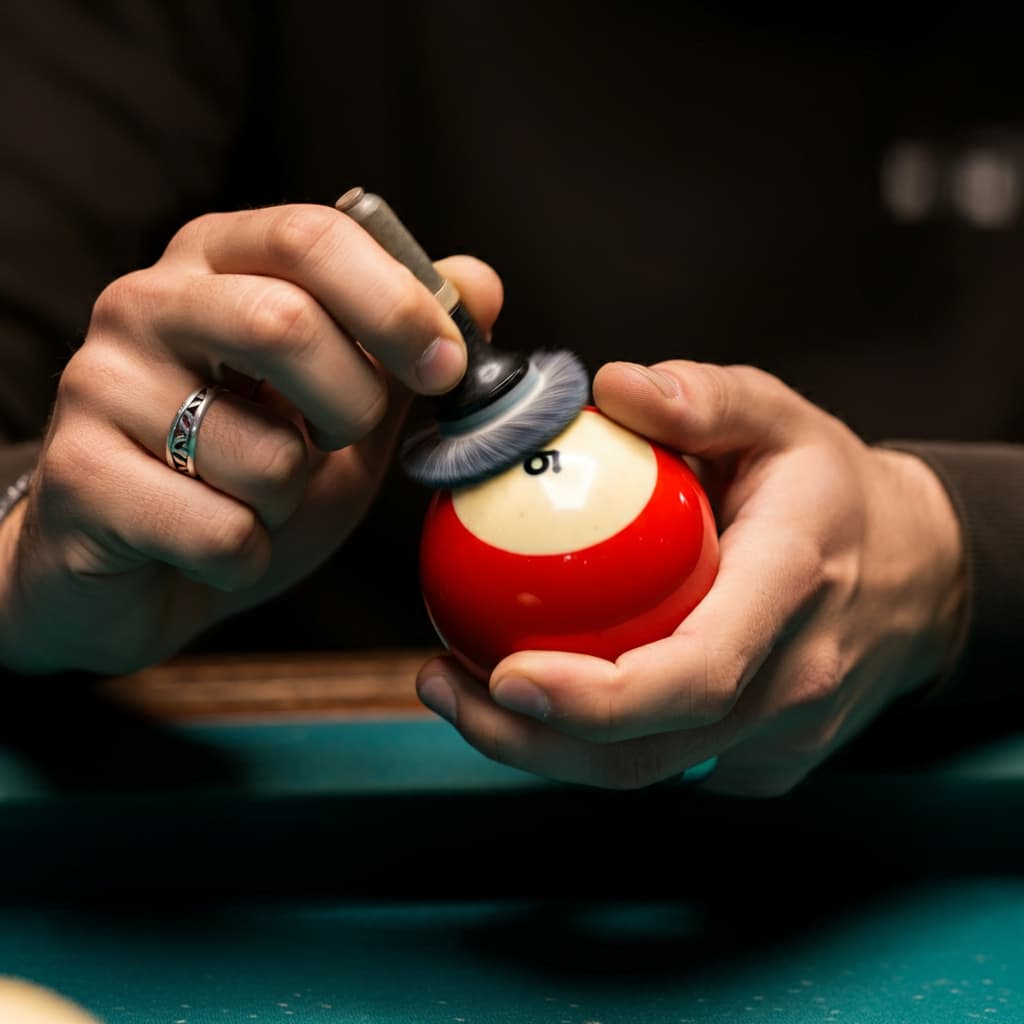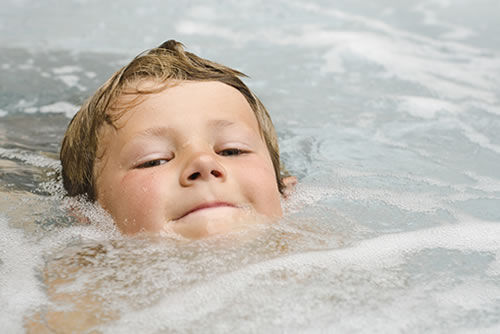Pool balls get dirty over time. Chalk, oils, and grime build up on their surface. This can affect how they roll and interact on the table. Choose one of the options on how to clean pool balls to prolong your billiard equipment and step up your gameplay.
View our selection of Pool Tables for Sale HERE!
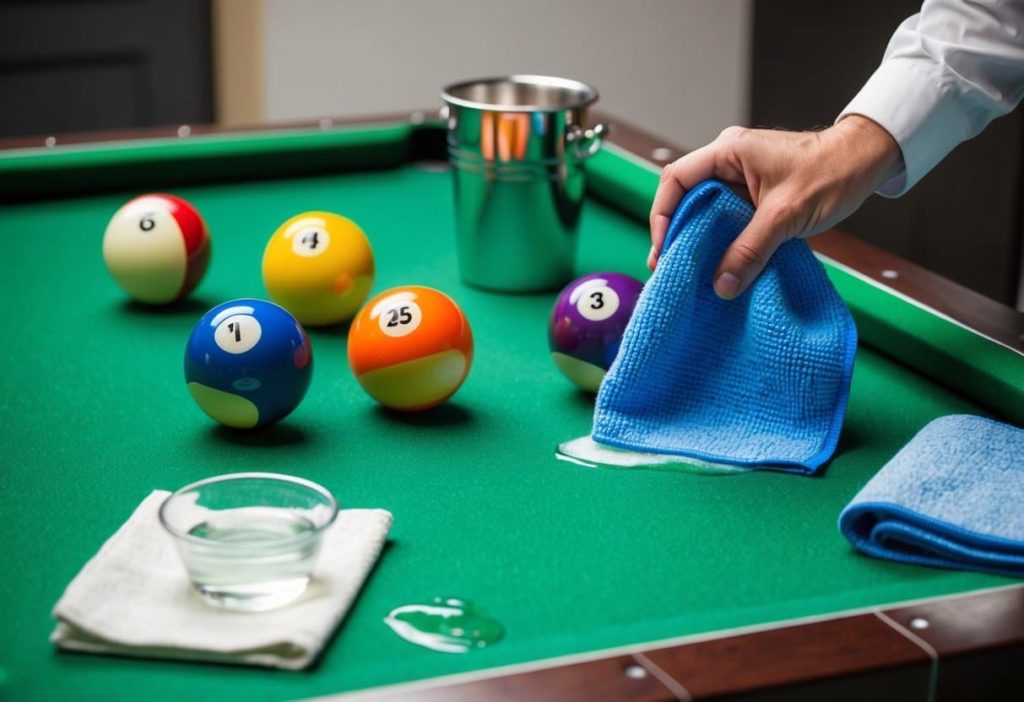
Clean pool balls improve game performance and the overall playing experience. Proper cleaning removes dirt and restores the balls’ original shine. This helps them move smoothly across the felt.
Regular cleaning keeps pool balls in top shape. It’s a simple task that makes a big difference. With the right method, anyone can keep their pool balls looking and performing like new.
The Basics About Pool Balls
Pool balls are key to the game of billiards. They come in different colours and numbers. The balls’ materials and how they get dirty affect their care.
Materials and Composition
Pool balls are made of phenolic resin. This material is tough and lasts a long time. It resists chips and cracks well. The balls are smooth and shiny when new. They weigh about 170 grams each.
Standard pool ball sets have 16 balls. There’s a white cue ball and 15 numbered balls. The numbered balls are in solid colours or stripes. Balls are 57 mm wide, give or take 0.127 mm.
Some cheap balls are made of polyester. These don’t last as long as phenolic resin balls. They can get marks more easily.
Common Causes of Dirt and Stains
Pool balls get dirty from normal play. Chalk from cue tips leaves marks on the balls. Players’ hands can leave oils on the surface. The felt on the table can also leave marks.
Drinks spilled on the table can stain balls. Food crumbs might stick to them too. Dust in the air settles on balls over time.
Improper storage can lead to dirt build-up. Balls left out might get extra dusty. Storing them in a damp place can cause mould spots.
Some cleaning products can harm pool balls. Harsh chemicals might dull the shine. They can also leave a film that attracts more dirt.
Preparing to Clean Pool Balls
Getting ready to clean your pool balls is simple. You’ll need a few basic items and a cleaning solution. Let’s go over what you need to do.
Gathering Your Materials
To clean pool balls, you’ll want these things:
- A bucket or sink
- Warm water
- Mild dish soap
- A microfiber cloth
- A towel for drying
Make sure your sink or bucket is clean before you start. You don’t want to add dirt to the balls while cleaning them. The microfiber cloth is great for scrubbing without scratching. Pick a soft towel for drying to avoid leaving lint on the balls.
Creating the Cleaning Solution
Mix warm water with a small amount of mild dish soap. Don’t use harsh cleaners, as they might damage the balls. Here’s how to make the solution:
- Fill a bucket or sink with warm water.
- Add a few drops of mild dish soap.
- Mix gently to create suds.
The water should feel warm to the touch, but not hot. Too much heat can harm the balls. Stir the water to spread the soap evenly. This mix will clean the balls without being too harsh on their surface.
Options on the Cleaning Process
Pool balls get dirty with regular use. There are several ways to clean them and restore their shine.
Use Billiard Ball Cleaner
Billiard ball cleaner is made for this task. It’s easy to use and effective. Pour some cleaner onto a microfiber cloth. Rub each ball gently to remove dirt and oils. Wipe off any extra cleaner with a clean part of the cloth.
This method is quick and doesn’t need much effort. The cleaner helps remove tough stains and marks. It also leaves a protective layer on the balls. This can help them stay clean longer.
Make sure to follow the product instructions. Some cleaners may need to sit on the balls for a short time before wiping.
Hand Washing the Balls
Hand washing is a simple way to clean pool balls. Fill a bucket or sink with warm water and mild dish soap. Put the balls in the soapy water. Use a soft cloth to clean each ball.
Rub gently to remove dirt and grime. Pay extra attention to any stains or marks. Rinse the balls well with clean water. Dry them right away with a microfiber towel to prevent water spots.
This method is good for regular cleaning. It’s cheap and uses items you likely have at home. Be careful not to use harsh soaps or scrubbers. These can damage the balls’ surface.
Using an Electric Cleaner for Pool Balls
Electric cleaners offer a hands-off approach. They’re good for deep cleaning or large sets of balls. Add the cleaning solution to the machine as directed. Place the balls inside and turn it on.
The machine spins the balls in the solution. This removes dirt without any scrubbing. Most units take about 5-10 minutes to clean a full set. After cleaning, rinse the balls with clean water.
Dry them well with a microfiber cloth. Electric cleaners can save time and effort. They’re a good choice for frequent players or pool halls. The downside is they cost more than other methods.
Polishing Pool Balls
Polishing pool balls keeps them smooth and shiny. This helps them roll better during games. Two key steps are picking the right polish and using the proper technique.
Choosing the Right Polish
Pool ball polish comes in many types. Look for a polish made just for billiard balls. These work best and won’t harm the balls. Avoid car waxes or furniture polishes. They can leave a slick coating that affects play.
Some polishes need water, while others are dry. Water-based ones are easier to use but may not last as long. Dry polishes give a longer-lasting shine but take more effort to apply.
Check if the polish works for your ball type. Phenolic resin balls need different care than polyester ones. The wrong polish can damage the surface.
The Polishing Technique
Start with clean, dry balls. Use a soft cloth to apply the polish. Microfiber works well and won’t scratch. Put a small amount of polish on the cloth, not directly on the ball.
Rub the polish in small circles. Cover the whole ball evenly. Don’t press too hard or you might damage the surface. Keep polishing until the ball feels smooth.
Let the polish dry as directed. This can take a few minutes to an hour. Once dry, buff the ball with a clean cloth. This brings out the shine.
Polish your balls every few months. More often if you play a lot. Regular care keeps them in top shape for better play.
Caring for Your Pool Balls
Pool balls need proper care to stay in top shape. Regular cleaning and careful storage keep them looking great and playing well.
Regular Maintenance Tips
Clean your pool balls after each use. Wipe them with a soft, damp cloth to remove chalk and dirt. For tougher stains, use a mild soap and water solution. Rinse the balls well and dry them right away with a lint-free towel.
Every few weeks, give your balls a deep clean. Use a special billiard ball cleaner for the best results. These cleaners remove tough grime without harming the ball’s surface. Follow the product instructions carefully.
Check your balls often for chips or cracks. Small damages can affect gameplay. Replace damaged balls to keep your set in good condition.
Storing Your Pool Balls
Keep your pool balls in a cool, dry place when not in use. Avoid leaving them in direct sunlight or near heat sources. This can cause the balls to warp or fade.
Store the balls in their original case or a special billiard ball case. These cases have spots for each ball, keeping them from bumping into each other. This prevents scratches and chips.
Don’t stack heavy items on top of your pool ball case. Too much weight can damage the balls over time. Handle the case with care to avoid dropping or banging the balls inside.
Troubleshooting Common Issues
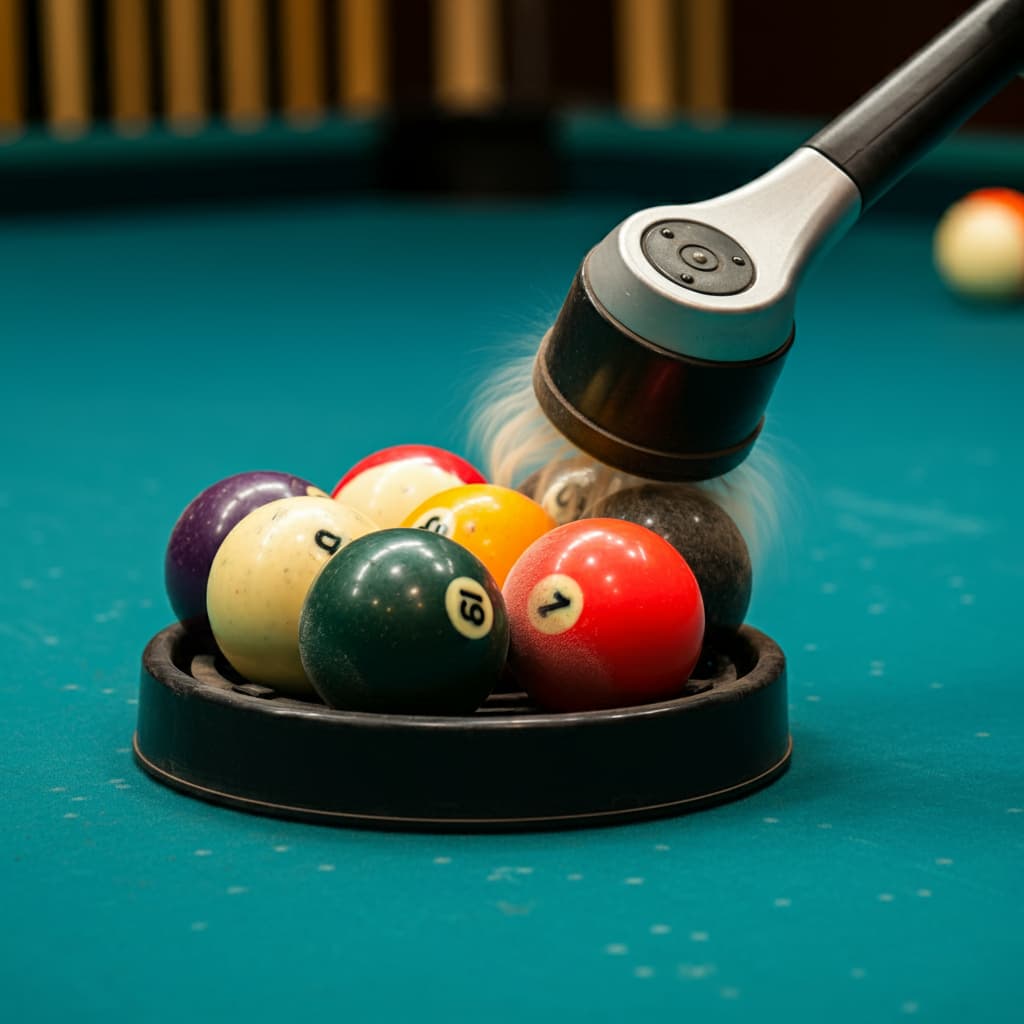
Pool balls can develop tricky problems over time. Here are some fixes for common issues you might face when cleaning your billiard balls.
Dealing with Stubborn Stains
Yellow stains on pool balls can be a real pain. Try using a mix of warm water and vinegar to tackle these tough marks. Soak the balls for 15 minutes, then scrub gently with a soft cloth.
For extra stubborn stains, make a paste with baking soda and water. Apply it to the dirty spots and let it sit for 5 minutes. Rinse well after.
If these methods don’t work, you can try a specialized pool ball cleaner. Follow the product instructions carefully.
Remember to dry the balls fully after cleaning to prevent water spots.
Addressing Scratches and Chips
Small scratches on pool balls can often be buffed out. Use fine-grit sandpaper to gently smooth the scratch. Be careful not to sand too much or you’ll change the ball’s shape.
For deeper scratches, you might need a pool ball polishing compound. Apply it with a soft cloth and buff it in circular motions.
Chips are trickier to fix at home. For badly damaged balls, it’s best to replace them. Using chipped balls can affect gameplay and damage your table’s felt.
Regular cleaning and careful handling can help prevent scratches and chips in the first place.
Enhancing the Gaming Experience
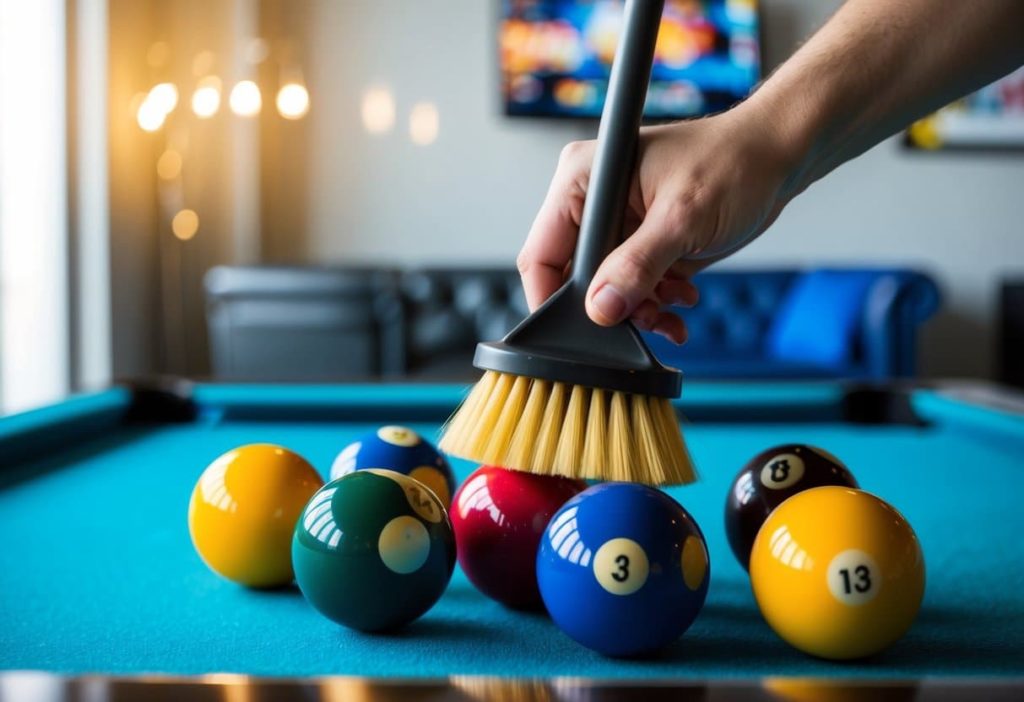
Clean billiard balls make pool and snooker more enjoyable. They roll smoothly and look great on the table. Players can step up their game with the right cleaning methods and tools.
The Impact of Clean Billiard Balls
Clean balls improve play in many ways. They roll straighter and more predictably on the felt. This helps players make better shots. Dirt and grime can throw off a ball’s path, leading to missed shots.
Clean balls also stick less to each other and the cue ball. This means better control over spin and ball placement. Players can pull off trickier shots with ease.
Shiny, clean balls look great too. They add to the classy feel of a billiards room. Guests will be impressed by the well-kept equipment. It shows care and respect for the game.
Upgrading to Professional Cleaning Equipment
A ball-washing machine is a game-changer for serious players. These machines clean balls quickly and thoroughly. They use special cleaning solutions to remove tough dirt and oils.
Ball washers come in different sizes. Small ones clean a few balls at a time. Larger ones can wash a full set in minutes. Some even dry and polish the balls after cleaning.
While pricey, these machines save time and effort. They’re great for busy pool halls or clubs. Home players might find them worth it too, especially if they play often.
Regular use of a ball washer keeps balls in top shape. This means less wear on the felt and better play overall.
Why You Need to Clean Your Billiards Balls Often
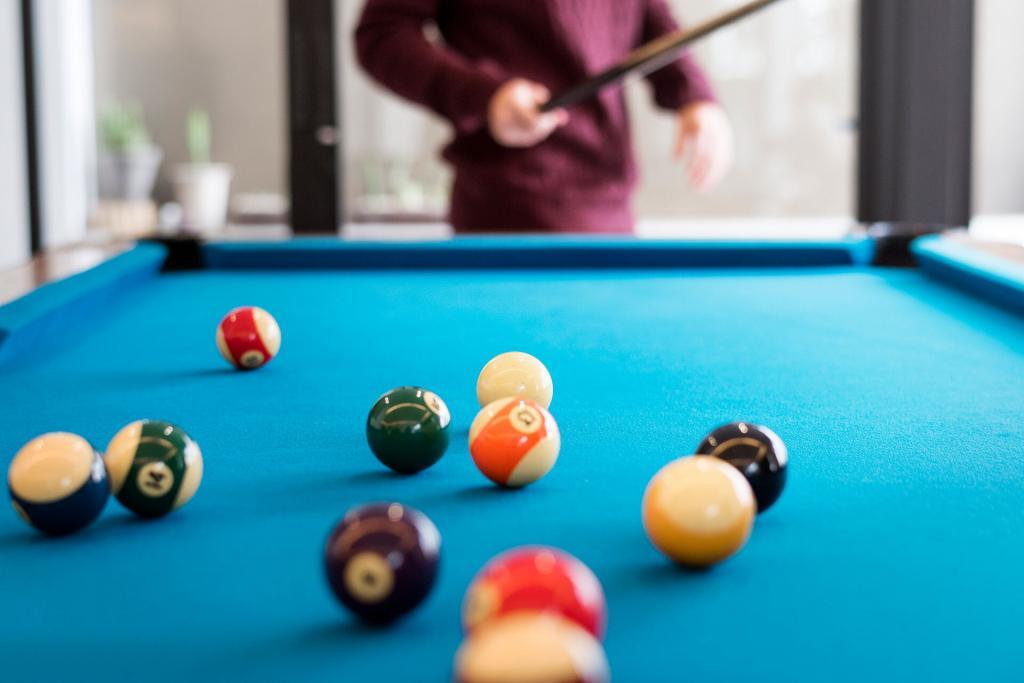
Just as you brush your table and chalk your cues, you should clean your billiard balls regularly. Besides enhancing the sheen, keeping your billiard balls dust-free has a few benefits.
#1. Cleaning ensures consistent playability
Clean, polished billiard balls roll smoothly. With an even surface—not raised or bumpy with dust—your strokes are cleaner.
#2. It reduces table maintenance
Chalk from the pool cue powders the cue ball. During its travels, some of that chalk falls onto the table. Consequently, object balls collect this debris and transport it during gameplay. Such chalk is abrasive and can damage the table.
We recommend wiping your billiards set with a microfiber cloth between uses. Occasionally, you should give the entire set a thorough cleaning.
Washing Your Billiards Balls
Balls made from phenolic resin require special cleaning products. Regular detergents often leave an unwanted film around the surface. That said, phenolic resin is a slick and durable substance that needs little attention. A simple wipe-down should be sufficient.
You can always purchase Aramith Ball Cleaner or a similar product from your local billiards store to refresh your set. Hot water, too, can dissolve dried chalk and buff out minor imperfections.
For other materials like plastic and polyester, avoid harsh liquid detergents. The wrong product can lead to scratches—worse it can remove the finish! Of course, ensure your balls are dry and rinsed before placing them back onto the table. As harmful as chalk can be to cloth, residual detergent is a far greater threat.
You can buy billiards balls of various materials, and each set may demand a different cleaning agent. Always consult the manual in the box or swing by the manufacturer’s site for advice. Do not assume regular detergent works without doing a little research first!
Frequently Asked Questions
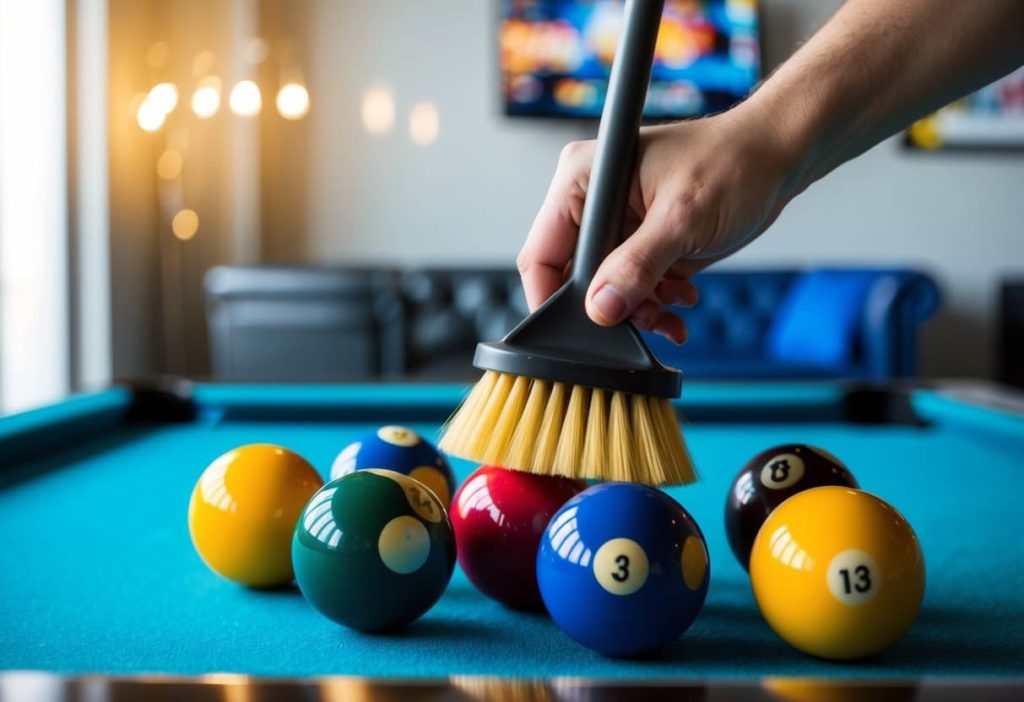
Pool ball cleaning can be simple with the right methods and products. Here are answers to common questions about keeping billiard balls in top shape.
What is the recommended method for cleaning discoloured pool balls?
For discoloured pool balls, a mix of warm water and mild dish soap works well. Scrub gently with a soft cloth or sponge. Rinse the balls with clean water and dry them right away with a lint-free towel.
Can you effectively wash pool balls by hand, and if so, how?
Yes, washing pool balls by hand is very effective. Fill a sink with warm water and add a bit of dish soap. Clean each ball with a soft cloth, rinse well, and dry them off quickly.
What household products can be safely used to clean pool balls?
Safe household products for cleaning pool balls include dish soap, white vinegar, and baking soda. These are gentle yet effective at removing dirt and grime. Avoid harsh chemicals that might damage the balls.
Are there any specific techniques for cleaning Aramith pool balls?
Aramith pool balls need gentle care. Use a soft cloth with warm water and mild soap. Don’t use strong chemicals or abrasive materials. Dry the balls right away to keep their shine.
Is there a particular machine designed for cleaning pool balls?
Yes, there are special machines for cleaning pool balls. These machines use water and cleaning solutions to wash many balls at once. They’re often found in pool halls and are great for regular cleaning.
How often should pool balls undergo cleaning for optimal maintenance?
Clean pool balls after every few games or at least once a week if used often. Regular cleaning keeps them looking good and playing well. For less frequent use, monthly cleaning is fine.

